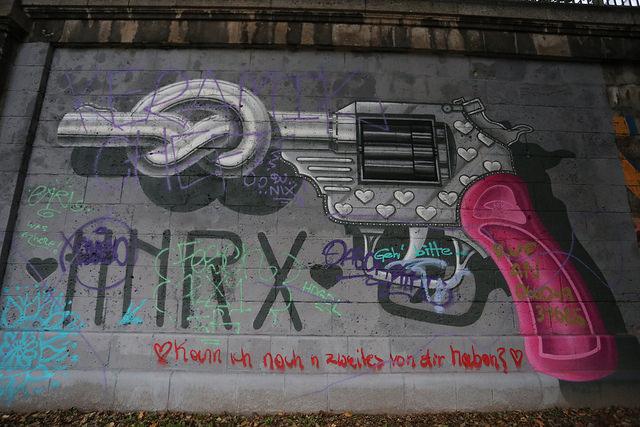
The Beat
Law enforcement and guns scrutinised after the Orlando massacre
In the early hours of Sunday morning, a gunman went on a shooting rampage in an Orlando nightclub leaving 49 people dead and resulting in the worst mass shooting in American history. As law enforcement officials in the US investigate the massacre, a number of news outlets have questioned the police response and assessed the efficacy of the tactics used. One article in The Australian has pointed to two key reforms—the Howard-era gun buyback and the 2004 crackdown on bomb-making chemicals—as contributing to Australia’s security from those types of terror attacks. From a different perspective, this article in The Age suggests that mass killings in the name of terror are inevitable, even in Australia.
The availability of guns in the US has rendered the country an international outlier in light of the massacre. A new podcast from The Economist looks at the economics of gun violence and gun control in wake of the Orlando shooting, with one body of research (PDF) suggesting that if the social costs of gun violence were assigned to each gun in the US, it would raise gun prices by as much as US$1,800. A timely new report from the Small Arms Survey has revealed that the US was the top importer and exporter of small arms and light weapons in 2013—maintaining its record high number of imports since 2001.
CT Scan
Orlando shooting raises new questions over lone wolf attacks
In the wake of the 12 June Orlando shooting, President Obama met with US counterterrorism officials to clarify details of the breaking investigation and reiterate his anger over gun legislation in the US. While perpetrator Omar Mateen announced his allegiance to Daesh, officials confirmed there was no evidence Mateen was directed by the group, despite it claiming responsibility for the incident. The attack has drawn scrutiny over FBI protocol since Mateen was previously twice investigated for inflammatory remarks and claims of ties to al-Qaeda and Hezbollah, highlighting new complexities in detecting lone wolf terrorist attacks. A 2015 US Department of State study found that compared to members of terrorist groups, lone wolves are older, less educated and more prone to mental illness.
Abu Sayyaf execute second hostage
Officials confirmed on Tuesday that Philippine terrorist organisation Abu Sayyaf executed a second hostage, Canadian Robert Hall, after a ransom deadline lapsed. Hall was abducted September 2015 from Samal Island, along with fellow Canadian mining executive John Risdel who was beheaded in April. Hotel manager Kjartan Sekkingstad and Hall’s companion Marites Flor are still thought to be in captivity. Abu Sayyaf, who pledge allegiance to Daesh, were attempting to negotiate US$6.5 million for Mr Hall’s release.
Checkpoint
How much does it cost to build a wall?
Donald Trump is as prevalent and outspoken as presidential candidates get, but he is still yet to concretely outline the cost of building his signature policy item: the wall at the Mexican border. First it was $4 billion, then $7 billion, then $10 billion and then in February this year $12 billion—to put that in perspective a single aircraft carrier costs approximately $13 billion to construct. Earlier this year John Oliver spent over 18 minutes of his show outlining the actual cost of Trump’s wall—upwards of US$25 billion. The Washington Post concurs, with its ‘fact-checker’ determining the cost to be the same amount. This doesn’t take into account the maintenance costs of the wall, which could be as much as $750 million a year. Along with the price, the proposed height of the wall has also fluctuated; it has now more than doubled since the beginning of Trump’s campaign (for a visual perspective of the wall see CNN’s animation). A structural engineer has even attempted to determine the amount of concrete necessary for the project—it would require double the amount of concrete that what’s been used to build the Hoover Dam. The wall would be the biggest infrastructure project in the US since Dwight Eisenhower’s highway scheme in the 1950s.
First Responder
Disaster risk reduction in the Americas
Paraguay hosted the first high-level meeting aimed at strengthening disaster response and building preparation capacities in the Americas last week. The meeting saw ministers and delegates from 35 countries—as well as representatives from civil society and the private sector—discuss the need for greater efforts to reduce financial damages and to demonstrate an ‘inclusive, people-centred approach’ to disaster risk reduction. The key focus of the two-day meeting was to develop guidelines for a regional action plan to encourage governments and communities to reduce the risk of disasters occurring and to ensure preparedness for when they do. The Americas are the second most disaster-prone region in the world—after Asia—with 93 major disasters recorded in 2015.
New recommendations to manage climate risk
A new report (PDF) released by the Committee for Economic Development of Australia (CEDA) on Tuesday has recommended Australia focus its response to climate change on new mitigation and adaption strategies. In particular, CEDA suggested Australia should expand its overview of climate risks to include a National Risk Register—similar to the UK’s National Security Risk Assessment—in order to examine public and private sector strategies to manage risk.